-
Empowering Disabled Kids Through Dance
Kids who require assisted living services from a caregiver agency near Memphis are often defined by their disabilities, rather than by their abilities. Parents can meet many of their needs with the help of assisted living services, but disabled kids also need to feel capable, accomplished, and as independent as possible despite the need for home care assistance. Dance is a fun and empowering way to accomplish this. Special needs dance classes give disabled kids access to jazz, ballet, hip hop, and tap.
Boys and girls of all ages and all ability levels can find joy in the creative expression of dance. Whether they are wheelchair-bound or limited to leg braces, kids who dance learn that they really can do anything they put their mind to. The benefits of dance aren’t just emotional, but also physiological. Dancing is excellent exercise for kids who generally can’t run around and play quite like other kids. The movements are modifiable to suit all sorts of physical limitations, and the physical activity supports muscle strength, flexibility, and range of motion.

-
Steps Seniors Can Take to Reduce Bone Fractures
Bone fractures are a significant health risk for seniors. Because many seniors suffer from bone loss, they are more vulnerable to fractures than ever before, and when fractures do occur, they can lead to prolonged loss of mobility, isolation, and depression. Fortunately, there are things that seniors and their caregivers in Memphis can do to reduce the risk of fractures and maintain their independence. Protect your bones or help an elderly love one keep his or her own bones safe with these steps.
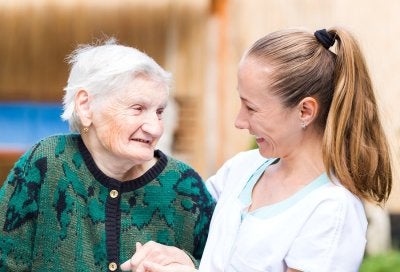
Assess the Home
Sometimes, simply making changes around the home can drastically reduce the risk of fractures. Increase lighting in dim areas, such as adding nightlights to hallways or additional lamps in a dark room. Make sure that railings on stairs are secure and consider adding an additional rail so that there is one on each side. Remove trip hazards, like area rugs and cords, and add grab bars around the toilet and in the shower. These small changes can make a big difference in a senior’s risk of falling.
Consider Health
If you are a caregiver for an elderly loved one, consider how his or her health may impact his or her risk of bone fractures. For instance, poor eyesight can make your loved one more prone to falling and fracturing a bone, so ensure that your loved one has regular checkups. Some medications can cause dehydration, dizziness, and other side effects that can increase the risk of a fall that leads to a fracture.
Seek Help
Seniors don’t have to choose between risking a fracture by staying at home or moving into an outside facility. Elderly care providers can help with the things that seniors can no longer safely do, from cooking and cleaning to personal hygiene and running errands. By making sure your loved one doesn’t take unnecessary risks, you can help him or her stay in the comforts of home without the complications of a bone fracture.
-
Steps to Take When a Loved One Dies at Home
Individuals who are in hospice care are often more comfortable living out the rest of their lives at home. The majority of end of life caretaking in Memphis may be handled by hospice professionals and by an in-home caregiver from a private agency. The primary family caregiver, who is usually the spouse or an adult child, will need to have a checklist of steps to take when the individual passes on.
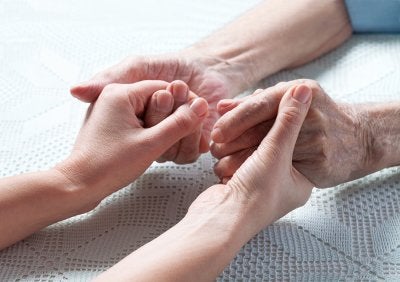
Locate the DNR
It is likely that your loved one would have a “do not resuscitate” (DNR) order if he or she is in hospice care. You will need to know about this as soon as your loved one enters into hospice care. The DNR is a document that must be issued by a physician. It instructs healthcare providers and/or first responders not to initiate resuscitation efforts in the event that the individual displays cardiac or respiratory arrest. Without a DNR, healthcare providers are required to perform cardiopulmonary resuscitation (CPR). This results in a distressing situation for the surviving family members.
Call Hospice and the Caregiver Agency
After a loved one dies at home , there is usually no need to act immediately. You may wish to sit with your loved one in quiet reflection or you may need to go elsewhere in the home to gather yourself. When you’re ready, call the hospice care team and the private caregiver agency to notify them of the death. They will arrive at your home shortly to assist you and make the official pronouncement.
Contact the Funeral Home
If pre-need arrangements have already been made, you can call the funeral home to notify them. Otherwise, select a local funeral home and make arrangements for the collection of the body. Before the funeral home representatives arrive, the hospice nurse and other caregivers will have already taken certain steps to care for the body and disconnect medical equipment, if necessary.
Make Notifications
If you have close family members nearby, you may wish to notify them before you call the funeral home. They may wish to spend some time with the decedent before he or she is removed. Otherwise, you can make notifications as soon as you feel able to do so. You may not need to make every phone call; notify a core group of close family members and ask that they finish the notifications for you.
-
How to Plan for a Hospital Discharge
If you have a loved one in the hospital, it’s likely that your focus is on his or her immediate well-being. But it is important to take a few minutes to consider his or her post-discharge needs, particularly if your loved one is an older adult who may require assisted living services. First, meet with the hospital care coordinator to discuss which challenges your loved one will face when he or she returns home. Then, contact a caregiver agency in Memphis and schedule an elder care consultation.
When you meet with the representative at the home health agency, bring along a list of your loved one’s anticipated post-discharge challenges. These will likely include mobility limitations and self-care impairments. Develop an elder care plan for your loved one that addresses all of his or her needs. Discharge planning will help your loved one focus on his or her recovery and maintain a high standard of living despite his or her limitations.

-
What to Do When Family Members Disagree About Transitional Care Plans
When your senior loved one requires assistance after an illness or medical procedure, the stress of making decisions and planning for their needs can be difficult for your family. When deciding on transitional senior care services serving Memphis, there are a few things you can do to help the planning process go smoothly among your family members.
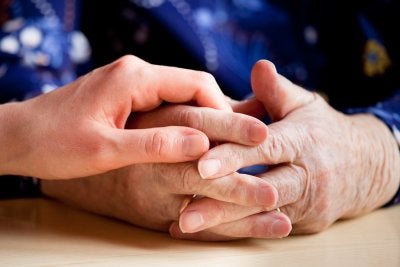
Begin preparing and reach a decision as quickly as possible.
Starting the planning process early is one of the best things that you can do to make the transition to in-home care less stressful for all involved. If your family members are in disagreement about the best strategy for providing your senior loved one with help, starting early and working continuously to make a decision is ideal. Once you realize that your loved one may need help at home, begin the discussion and talk with your family until you can reach a conclusion. Doing this can help you avoid being left without a plan or many options once your loved one is ready to come home.
Explain to your family that change is necessary.
In many cases, families disagree about assisted living options because they dislike the idea of someone that they don’t know caring for their loved one. Making it clear to everyone why your loved one needs help and why you and other family members might not be able to provide her with everything that she needs during this period can help those in disagreement gain a better understanding of the situation.
Compare the benefits of different transitional care plans.
There are many types of elder care programs available, and choosing the one best suited for your loved one can be challenging. First, speak with the senior to determine how she feels about having assistance at home. Next, talk to her doctors to learn what she will require help with during her recovery time. Once you know what needs will have to be addressed, you and your family can discuss transitional care plans with a better understanding of what support your loved one requires during this critical time.
-
Identifying Goals for Home Care Transitions
A mistake many people make when a loved one is transitioning to home care is assuming that once he or she is home that everything will be normal. In reality, your loved one is likely to have care needs that you are not accustomed to, and failing to plan for them can cause frustration. Consulting with a caregiving agency in Memphis as well as your loved one’s care team can help you determine a plan for providing the necessary assisted living services and identifying goals to encourage your loved one’s recovery.
Goals for the transition to home care can include things like increasing your loved one’s ability to walk around the block one more time each week or completing a set of daily exercises recommended by a physical therapist. The exact nature of the goals depend on your loved one’s condition, but having a recovery plan in place can prevent the need for your loved one to return to a care facility. Be sure that your in-home caregiver understands these goals as well so he or she can incorporate them into the assisted living and home health care plan as needed.
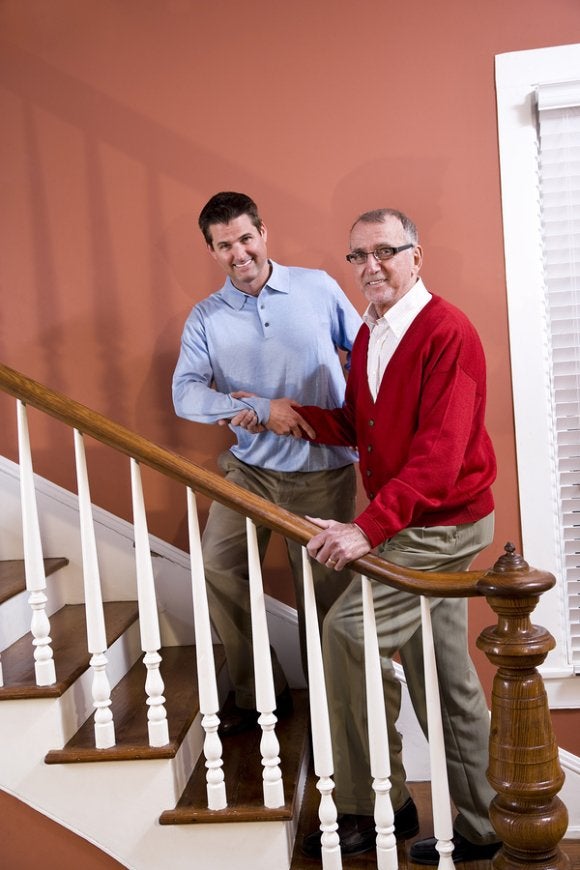
-
Knowing What to Expect When a Loved One Reaches the End of Life
When you have been advised that a loved one is nearing the end of his or her life, it’s natural to wonder what the future holds. Fortunately, in-home hospice care can be extremely comforting for both you and your loved one, as an experienced end-of-life caregiver guides you through the process and helps you understand what to expect. Here are some of the symptoms you may see in your loved one while he or she is receiving end-of-life care in Memphis .
rst
Fatigue
Fatigue can be overwhelming at the end of life. Your loved one may be unable to take part in any activities that require physical exertion and may struggle to hold long conversations, read, or watch television without sleeping. When your loved one does have energy, plan activities that make the best use of that time, even if it means simply sitting together and having a long talk. In very late stages, your loved one may appear to be asleep or in a coma and unable to speak at all. However, he or she can still hear you, so continue to talk to your loved one. Your hospice care provider can help you recognize the signs that your loved one’s fatigue is becoming overwhelming.
Shallow Breathing
At the end of life, breathing becomes slow and shallow, and there may be periods where your loved one sighs or takes a deep breath and then doesn’t breathe again for a few beats. This kind of shallow breathing is normal. Turning your loved one on his or her side can be helpful. Generally, people who are experiencing this shallow breathing are not uncomfortable. Ask your hospice caregiver for advice of you believe your loved one is suffering, as a doctor can treat this symptom to increase your loved one’s comfort.
Decreased Need for Food and Water
It can be scary to watch your loved one eat and drink less, but resist the urge to force food or water. Give your loved one easy options, like ice chips and soft, easy-to-digest foods. Dehydration is common when your loved one’s appetite declines. Keep his or her lips and mouth moist with glycerin swabs and lip balm.
-
Preventing Medication Overdoses in Seniors
Medication assistance is often a key part of elder care in Memphis . Most seniors take some kind of medication. Whether it is a prescription heart medicine or regular insulin for diabetes, almost all seniors take at least one pill daily. Often, these prescription drugs are essential to their very lives. Unfortunately, as they age, seniors become increasingly likely to either forget their medicine or accidentally overdose. Read on to learn how you can help prevent a dangerous medication overdose in your senior loved ones by using medication management, hiring caregiving help, and checking prescription safety.
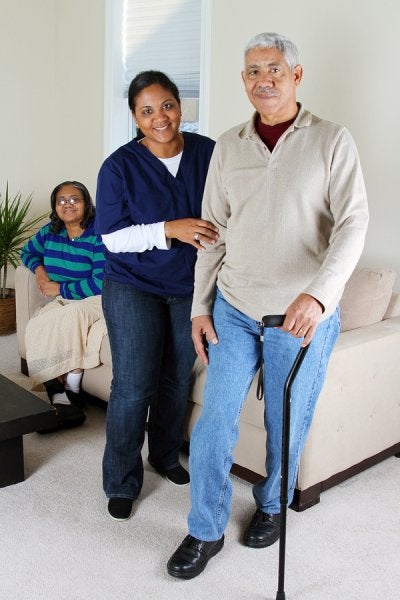
Use Medication Management
Medication management is often essential for elderly care. To prevent medication overdoses, consider investing in modern medication management tools to remind yourself and your senior loved one of how much medicine to take and when. Many bill bottles come with different compartments for days of the week. Modern pill bottles are also equipped with alarms and even electronic disbursement systems, so your loved one and his or her caretaker know which pill to take. Many medications must be taken at the same time each day, which means these systems are integral.
Hire Caregiving Help
Hiring caregiving help is one of the best ways to prevent medication overdoses. Many seniors become forgetful with age, whether it is due to a neurological condition like dementia or as a natural side effect of the aging process. When you hire elderly care help, you can count on your loved one taking the correct dose of medication every time. Otherwise, seniors could forget that they have already taken a pill or how much was ingested.
Check Prescription Safety
Whether you are the primary caregiver or hire caring companions to assist with administering medication, you should always remain vigilant when it comes to the medications your senior loved one has been prescribed. Many people visit different doctors for different ailments. Make sure that all your loved one’s physicians, including dentists and psychiatrists, are aware of all medications that have been prescribed. This will ward off both accidental overdose and bad medication interactions.
-
What You Should Know About Return Home Care
If you have a loved one who is currently staying in a hospital or another medical facility, you may not have thought much about what will happen when he or she returns home. However, proper return home care is critical to ensure the continued health of your loved one. A professional caregiver in Memphis can provide you with the guidance and assistance you need to ensure that recovery goes smoothly. Here are some important things you should know about return home care.

Making your home a safe space. It’s important that you make any modifications to your home that are necessary to make it a safe and comfortable place for your loved one to be. This may mean installing grab bars in bathrooms, adding a wheelchair ramp, or clearing away clutter that could lead to accidents. A home health professional can advise you on how you can make your home safer.
Seeking out useful resources. You should work closely with the healthcare facility your loved one is staying at in order to make the transition home as easy as possible. Your loved one may require round-the-clock attention, as well as assistance with daily tasks such as bathing and dressing. You may also need access to transportation services for your loved one’s convenience. Having an in-home caregiver on hand can help to make it easier for you and your loved one to adjust to the recovery process.
Determining your health goals. When your loved one is released, he or she will probably require continued care during recovery. It’s important to plan out a program that will maximize your loved one’s level of recovery, which may include working with physical or occupational therapists in order to improve his or her condition. Pre-planning return home care will help ensure that your loved one stays healthy and can continue to lead a comfortable life at home.
-
Protecting Seniors from Financial Fraud
Protecting seniors from being taken advantage of is essential to elder care in Memphis . As you will learn in this video, elderly individuals are especially susceptible to financial fraud.
One aspect of elder care involves making sure that seniors do not fall victim to thieves and predators. Whether you hire a professional caregiver or are personally responsible for a senior loved one’s home health care, you should always be wary when a senior makes a large financial investment. The biggest sign of financial fraud is any investment that maintains it is “guaranteed to make money fast.” Anything that promises unreasonable returns is likely fraudulent.
